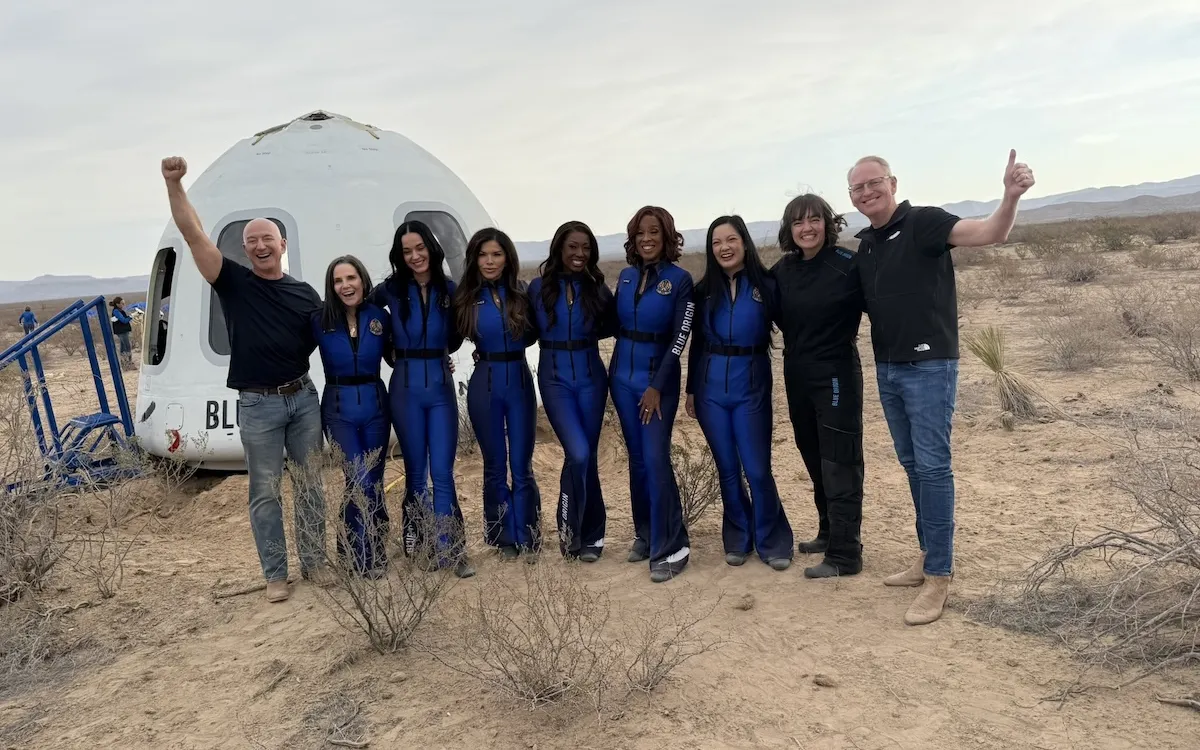
On Monday at approximately 9:30 a.m. ET, Jeff Bezos’ space company, Blue Origin, successfully launched its New Shepard rocket, marking a significant milestone in the space tourism industry. This launch not only places Blue Origin in direct competition with Elon Musk’s SpaceX but also celebrates a groundbreaking achievement: the first all-female space crew since 1963, when Soviet astronaut Valentina Tereshkova made her historic solo mission.
The recent launch is notable for being the 31st flight of the New Shepard rocket and its 11th mission with a crew onboard. This remarkable journey included a diverse group of women, featuring pop artist Katy Perry, CBS Mornings anchor Gayle King, film producer Kerianne Flynn, Bezos’ fiancée Lauren Sánchez, civil rights activist Amanda Nguyen, and aerospace engineer Aisha Bowe. Each of these women brings a unique perspective to the mission, embodying the spirit of empowerment and representation in the field of astronautics.
The aim of this mission is to shine a spotlight on the essential roles that women play in the realm of space exploration. Despite the celebratory nature of the launch, Blue Origin has faced criticism for its exclusivity, particularly regarding the high cost of participation. During a time of economic challenges in the U.S., many view the venture as accessible primarily to the wealthy. The ticket price to reserve a spot on this extraordinary journey is set at $150,000, raising questions about the inclusivity of space tourism.
In a recent interview with CBS, Katy Perry offered a refreshing viewpoint on the mission's significance. She emphasized that the experience wouldn’t solely be about personal achievement but rather about the profound beauty of Earth as seen from space. “It won’t be about me; it will be about the beautiful Earth we get to see. I think the perspective we’re all going to walk away with is, ‘Oh my gosh, we have to protect our mother,’” Perry stated. This perspective reinforces the idea that space tourism can serve as a catalyst for environmental awareness.
As Blue Origin continues to develop its space tourism program, the implications of this flight extend beyond the immediate thrill of space travel. The emphasis on an all-female crew not only inspires future generations but also challenges the status quo in a traditionally male-dominated industry. While the costs associated with these missions continue to be a topic of debate, the push for greater diversity and inclusion in aerospace is gaining momentum.
As we look ahead, the competition between Blue Origin and SpaceX is likely to intensify, promising more groundbreaking missions that could redefine our understanding of space travel and the role of women within this exciting frontier.